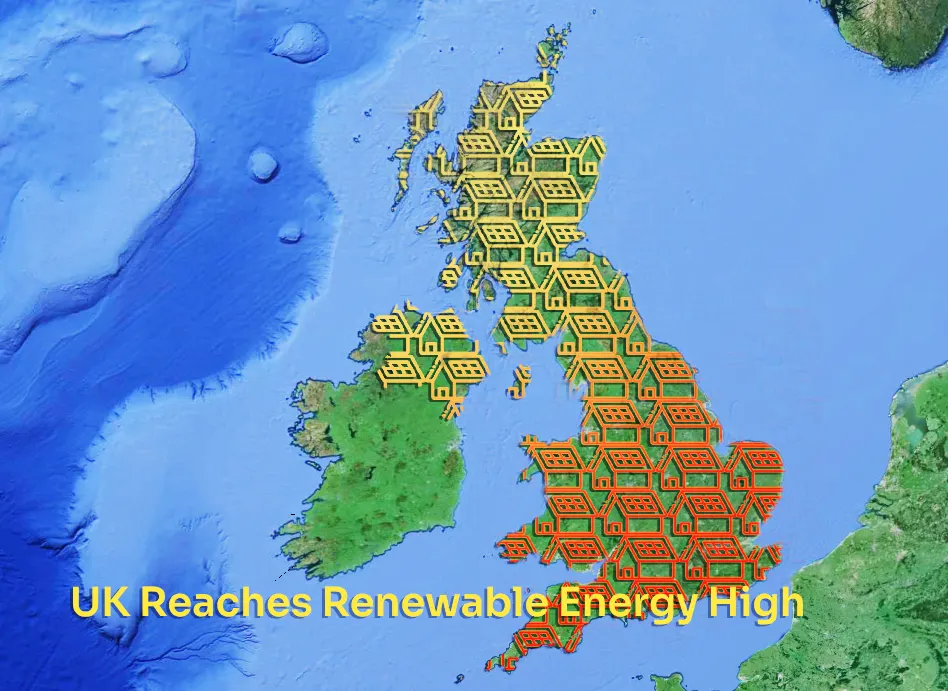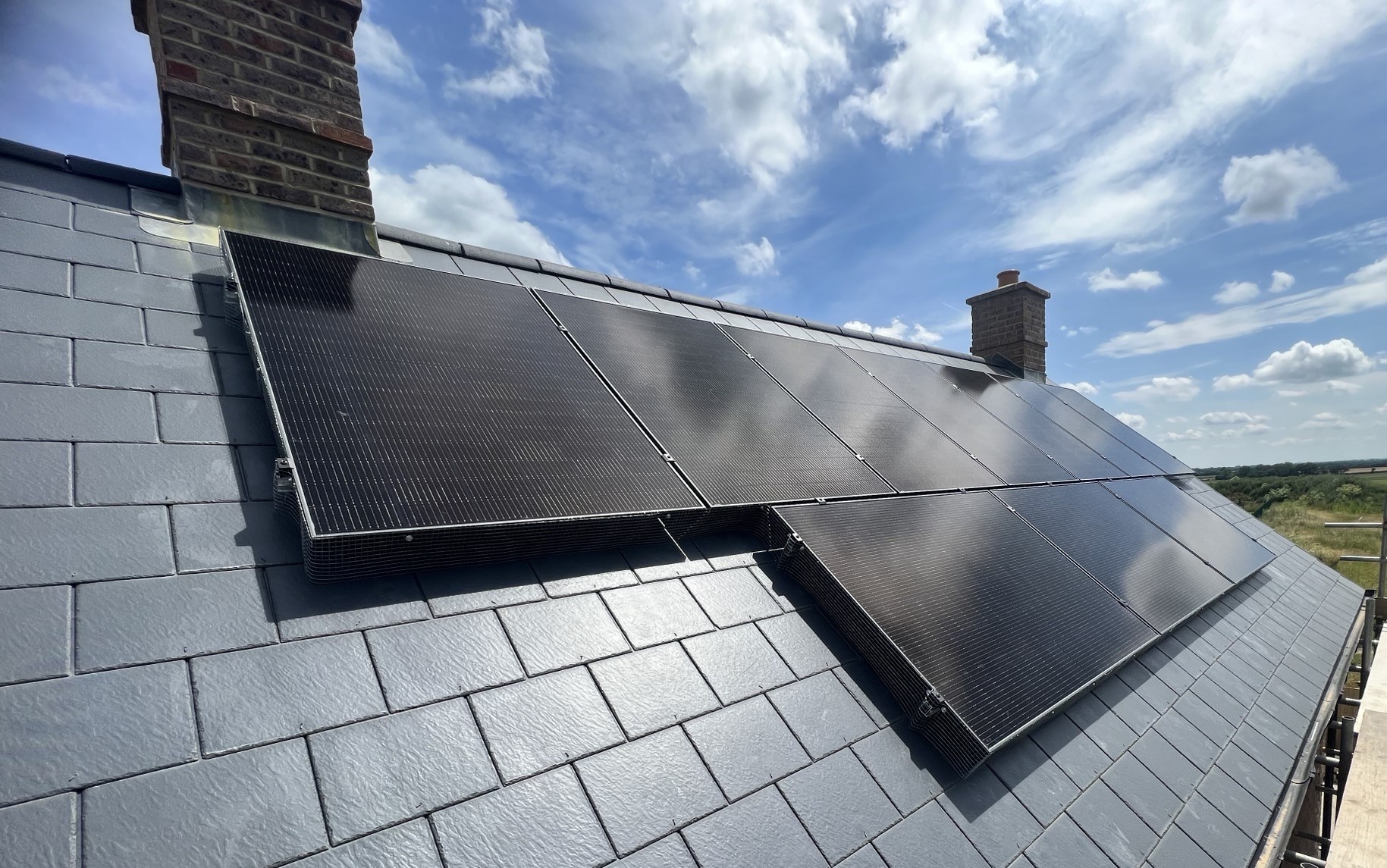In 2023 the UK reached a new high for renewable energy with 46.4% of the country’s electricity being generated from renewable energy, and surpassed fossil fuels at 36.7%. This is up from 41.5% in 2022 and is the third time in four years that renewable energy surpassed fossil fuel production in the UK.
All low carbon energy sources made up a record level of 60.3% of electricity in 2023. The volume of wind power is one of the biggest reasons for the increase with it contributing 28.1% of electricity (17% from offshore and 11.2% from onshore wind).
Solar PV is also reaching record levels and helping to balance out the weather variances with wind.
The household Solar PV impact
With growing numbers of domestic solar PV systems, these systems are starting to make a collective impact on electricity generation. If you are keen to join this growing number of households generating green energy and reducing their reliance on fossil fuels, there’s no better time to install solar PV on your home.
Solar PV technology has improved over the past couple of decades to offer more efficient systems that can produce electricity in less bright weather and that can last longer. It has also become more affordable and with increased electricity prices the length of time for getting a return on investment is shortening. So whether your motives are to consume more environmentally friendly electricity, reduce your reliance on the grid or make savings on energy bills, solar PV is a great solution.
Could Solar PV be a good option for you?
For many homes in South-East UK, solar PV is a great way to produce electricity as long as you have a suitable roof space that has the right orientation and has no shading. Your roof can be pitched or flat as we have mounting systems that can help optimise the panels.
You can also combine the solar PV system with battery storage so that you can utilise as much of the electricity generated as possible. As the solar panels will be generating electricity during the day whilst it is light, you would need to use the electricity as it is generated and if you didn’t it would be exported to the grid (which you can receive a small fee per kWh for). Financial you are better off if you can use the electricity yourself rather than exporting it and not purchasing electricity at other times of the day. Also with increased energy prices, battery storage has become even more attractive as the price difference in buying electricity has risen. There are even innovative energy plans like Octopus Flux that reward you for utilising your battery storage so you can increase the money you generate from your solar PV system.
Typically a UK household could save up to 70% on their electricity bills and with rising energy prices the financial savings will increase throughout the solar panel’s lifetime. The savings that you make will result in a return on your investment in 5-9 years which means for the remaining lifespan of the solar panels (typical lifespan is around 25 years) they will continue to save you money.
One year after installing solar panels at one of our client’s houses we revisited the installation to see how much they were saving and how much they are likely to achieve over its lifetime, and the figures make great reading.
If you want to find out if your home is suitable and what you could generate from solar PV, contact us for an informal discussion, or fill out our quick and easy form for an online, no-obligation quote.





